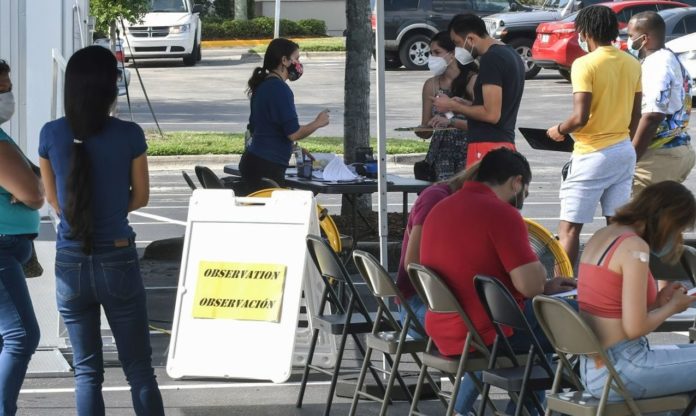A study published in the journal ‘PLOS Pathogens’ has revealed two structural points in one of the proteins of the virus that causes COVID-19 going unnoticed by the antibodies generated after vaccination or infection.
Understanding and predicting how these changes affect the course of infection is critical for changing strategies to contain the COVID-19 pandemic.
The IGC investigation, which was conducted in partnership with teams directed by Cláudio M. Soares of ITQB NOVA and Helena Soares of CEDOC, focused on the structure of the SARS-CoV-2 Spike protein.
To ascertain the effect of alterations to this protein, the research team developed procedures that enable it to be expressed in non-viral particles that are safe to investigate and do not require high-security laboratories.
It is feasible to quantify the protection provided by antibodies produced in response to infection or vaccination by adding them to cells and viral particles in culture.
“Using this technique, we have detected two mutations at different points in Spike, that cause the virus to evade antibodies generated after infection or vaccine administration. In addition, this occurs without compromising its entry into cells, because it does not affect the binding to the cell receptor necessary for this process. With these changes, the virus continues to enter the cells without great cost for the infection and avoids the recognition by the antibodies”, explains Maria João Amorim.
“When we looked at this data, there were two points that stood out as having the potential to harbor mutations that could be dangerous,” adds the researcher.
Next, the mutations were tested on the lab bench, where they were proven to have the potential to evade antibodies.
“The interaction between viruses and our immune system resembles a game of rope, in which each of the “teams” pulls the rope in its direction. What we saw in this study is that certain mutations in the Spike protein of SARS-CoV-2 allow it to evade an important facet of the immune response, which is antibodies. However, the immune system is also plastic and adaptable. Knowing which mutations are most likely to escape the immune system allows us, if eventually necessary, to design strategies to help the immune system recognize and respond to these mutations more quickly.”
One of the mutations noted, called 484, had been previously identified and is included in the variants of concern from Brazil, South Africa and India. The other mutation, 494, emerges as a new structural point likely to change in the SARS-CoV-2 virus.
“Mutation 494 is on the list of variants currently under investigation by the CDC [Centers for Disease Control and Prevention] and Public Health England. With this study, we were able to prove that it allows the virus to escape antibodies. This proves that we should investigate the need to develop vaccines and therapies that can respond to these mutations, as well as determine the mechanisms that allow the virus to replicate without being recognized,” adds Maria João Amorim.
Photo by Paul Hennessy/SOPA Images/LightRocket via Getty Images
